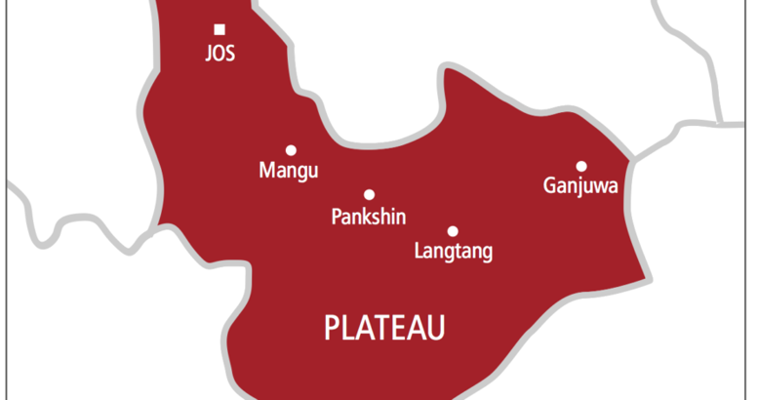For years, Plateau State—nestled in Nigeria’s North-Central region—has been a place of both breathtaking beauty and heartbreaking violence. Lately, however, it’s the bloodshed that’s been impossible to ignore. A relentless wave of attacks over recent weeks has left dozens dead, thousands displaced, and an entire nation once again grappling with the reality of a security system struggling to keep up.
The violence, often chalked up to communal tensions or criminal gangs, is far more complex than any single explanation can capture. As communities mourn and survivors pick up the pieces, questions mount: Why does this keep happening? And what is being done to stop it?
A Bloody April
The first week of April 2025 saw a chilling escalation. Armed attackers stormed several villages in Bokkos Local Government Area—Hurti, Josho, and Daffo among them—leaving at least 40 people dead and razing close to 400 homes. Nearly 1,000 residents fled, adding to the state’s swelling population of internally displaced persons.
The violence didn’t stop there. On April 13, a father and his two sons were murdered in their sleep in Zogu village, Bassa LGA. Just a day later, 51 more lives were claimed in the nearby Zike community, all within a span of hours. That attack came hot on the heels of another massacre in Bokkos, where 52 people were killed and around 2,000 forced from their homes.
By mid-April, the death toll had surpassed 100 in a single week. Among the dead and missing were students, including those from Plateau State University. The National Association of Nigerian Students (NANS) and the Christian Association of Nigeria (CAN) both condemned the killings, calling them an affront to humanity.
More Than Just Farmer vs. Herder
Too often, violence in the Middle Belt gets brushed off as just another round in the long-running farmer-herder conflict. But leaders in Plateau—and beyond—are pushing back on that narrative.
Governor Caleb Mutfwang has openly called the attacks “genocidal” and “sponsored,” rejecting the simplistic farmer-herder framing. Former Governor Jonah Jang was even more direct, blaming a “known group with a hidden agenda” for what he called a systematic campaign of terror.
The truth is messier. Plateau sits at the crossroads of Nigeria’s ethnic and religious identities. Indigenous Christian farming communities and Muslim Fulani herders have a long, troubled history marked by land disputes, cultural friction, and deep-seated mistrust. But these latest killings appear to go beyond old rivalries.
The Crisis Within the Crisis
Ethnic and Religious Tensions: The region’s diversity, while rich, also fuels division. Attacks often target specific ethnic groups, raising fears of ethnic cleansing.
Criminal Exploitation: Armed groups—some branded bandits, others terrorists—have capitalized on the chaos, using it as cover for looting, kidnapping, and murder.
Security Failures: Critics, including former Vice President Atiku Abubakar, have lambasted the federal government for repeated lapses. Amnesty International has demanded a full probe into why violence persists despite heavy military presence.
Socioeconomic Struggles: With poverty and unemployment rampant, especially in rural areas, extremist groups find easy recruits among disillusioned youth.
Responses: Promises and Pressure
The latest attacks have drawn swift—if familiar—responses from both state and federal authorities.
President Bola Tinubu condemned the violence and ordered a crackdown, while the National Emergency Management Agency (NEMA) began distributing aid. Two suspects were arrested by April 16, and the Inspector-General of Police deployed tactical units to the hardest-hit areas.
Still, for many Plateau residents, words and deployments are no longer enough.
NANS has called for relocating military command to the state, while civil groups like the Northern CAN and the Arewa Consultative Forum are demanding a long-term, inclusive solution. Governor Mutfwang, for his part, is urging unity and pledging justice—while warning against divisive rhetoric that pits communities against one another.
What Now?
Plateau’s agony is a mirror held up to Nigeria’s broader security dilemma. The country currently ranks sixth on the 2025 Global Terrorism Index. Analysts warn that unless Nigeria commits to deep structural reform—fixing its security apparatus, promoting equitable development, and fostering genuine political inclusion—these tragedies will keep repeating.
The stories from the ground are gut-wrenching. Villages like Ruwi, Mangor, and Hurti are not just names on a map—they’re homes, now reduced to ashes. Survivors are living with trauma, grief, and a gnawing uncertainty about what tomorrow might bring.
As the world watches, one thing is clear: the people of Plateau State deserve more than just sympathy. They deserve peace—and the unwavering political will to make it a reality.
Sources: Punch Newspapers, Reuters, Daily Trust, HumAngle, NBC News, Vanguard News, Channels TV, Arise TV.

